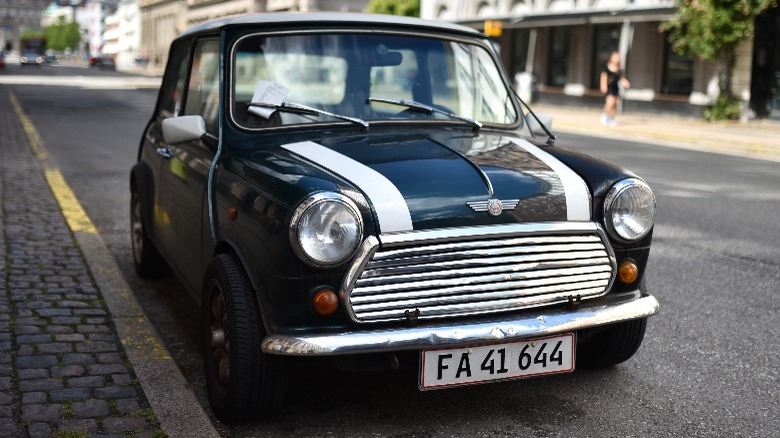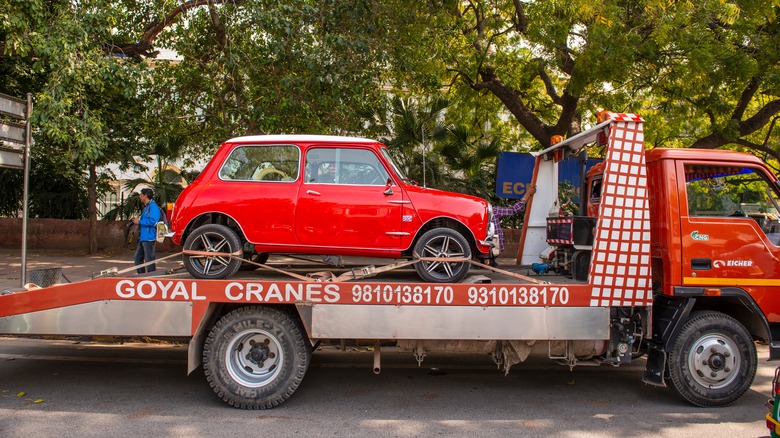The Real Reason America Banned The Rover Mini Cooper
The Rover Mini Cooper was supposed to be the classic '60s icon albeit with safer, up-to-standard specifications, so why was it banned in America over safety concerns? Before BMW's modernized Mini Hatch took its place, the original Mini Cooper was still sold in the 2000s as the Classic Mini. While the Rover Mini Cooper kept the original model's design, it was updated with better safety features such as steering wheel airbags and side-impact protection (via BMW). In 2014, however, the U.S. Customs and Border Protection posted a video (embedded below) showing an imported Classic Mini being scrapped in public after being seized by the authorities.
This was due to the Classic Mini's Vehicle Identification Number being tampered with to make it appear like an '88 model, according to the Associated Press. Much older Mini Coopers aren't subject to such a treatment thanks to the Imported Vehicle Safety Compliance Act, which exempts imported vehicles that are at least 25 years old. Sure, the 2000 Rover Mini Cooper isn't old enough to be exempt yet, but does that mean these cars are really that unfit for driving?
The import ban is nearly expired
The Classic Mini is just one of the many gray market imports that have been seized in various ports around the U.S. as part of Operation Atlantic. Such illegally imported vehicles may have been illegally reconfigured or even contain stolen parts (via Autoblog). However, it's not a matter of Rover Mini Coopers, in general, being too hazardous to be driven, but rather, they're simply not old enough to be imported legally. This forces the 2000 Classic Minis into the gray market, where importers have to make dubious modifications to bypass those laws just to get them on U.S. soil prematurely.
Of course, it also results in manipulated VINs that make them appear suspicious in the process. Those who still want to get their hands on a Classic Mini in the U.S. can still do so legally, they just have to wait a couple more years until it's officially labeled as an antique car. That is unless you want to risk getting a gray market import that's not only illegal but has potentially had its insides altered in order to appear to meet compliance requirements.
Is the law just as outdated as the car?
It's quite ironic how older Minis with outdated safety technology are allowed to be imported, while the improved Classic Minis aren't. This even prompted a petition on Change.org hoping to abolish the law, with people exclaiming that it didn't make any sense. Although the Imported Vehicle Safety Compliance Act might seem like it's solely intended for the benefit of public safety, that might not be entirely the case. Before the legislation was even passed, it was mostly supported by local car dealerships and manufacturers, whose sales were significantly affected by gray market imports, according to Autoweek.
This led to imported cars being subjected to tighter industry standards, which eventually forced the gray import market to fold. Cars that are 25 years or older were exempted from complying with listed U.S. standards as they were seen as collectibles instead of competitors for the local market's existing lineup. Efforts were made to reduce the law to 15 years, but it didn't garner enough signatures to pass. For the moment, the law stands, and those who insist on importing Rover Mini Coopers prematurely will potentially be met by a seized vehicle and nothing but a smashed pile of metal and glass to show for it.


